Monthly Archives: July 2022
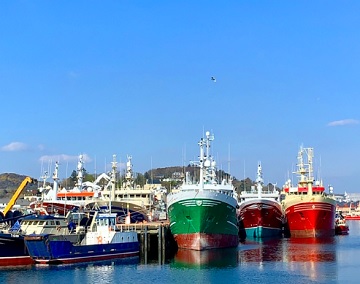
Seafood Sector Faces Shutdown Over Rising Fuel Prices
Ireland’s fishing and fish producer organisations say they are under threat of being wiped out by high energy prices. In turn, jobs and food security is at risk. A joint statement from eight groups is calling on Government to act now to claim available EU funds to compensate the seafood sector and get the situation under control. Teachta Mac Lochlainn said: “I am again appealing to Minister McConalogue to urgently take action on this crisis that is about to close down our fishing industry. The fishing industry in Ireland estimates that fuel needs to be cheaper than 60 cent a litre for Irish trawlers to run profitably. Fuel is now costing €1.30 or more. That is the scale of the crisis. >click to read< 15:14
Athearn Marine Agency Boat of the Week: 72′ Steel Dragger with Permit, Cat 3412
To review specifications, information, and 50 photos’, >click here<, To see all the boats in this series >click here<
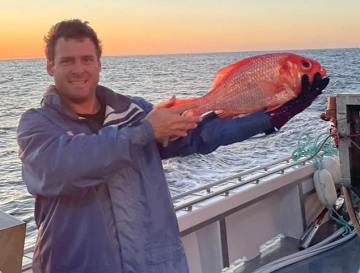
Commercial fishers in Western Australia say fuel costs will push up seafood prices
Petrol prices have surged by more than 25 per cent since the start of the year. The dramatic price increase has led some in the industry to make hard decisions around what to charge for their catch, warning it could lead to less local produce on the plate. Bunbury commercial fisher Brian Simone said his prices were based on a fuel price between $1 to $1.50 litre. However, he said a surge in fuel costs beyond $2 a litre was making it hard to sell his fish. Mr Simone said in his 45 years in the industry he had not seen the price of fuel rise so quickly. “We started off 20 cents a litre back in ’79, and now it’s $2.50 a litre,” he said. >click to read< 11:04
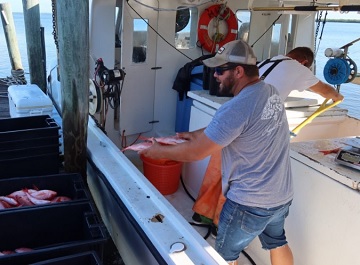
Potential aquaculture sites in Gulf of Mexico concern commercial fishermen
Capt. Casey Streeter’s crew is waist deep in the commercial icebox on its 36-foot Thompson boat. Ice is shoveled overboard, while fish are pulled from the ice into bins, some separated by size and others by species. Fishermen Greg Trammell and Jimmy Bergan just returned from being on the water for seven days. Bins and baskets full of fish filled to the rim as they offload their catch to be sold at Island Seafood Market in Matlacha. It is owned by Streeter and his wife, where they catch and sell their own fish. Streeter is a first-generation fisherman, fishing commercially for 10 years. Streeter’s livelihood relies on the health of marine ecosystems. With the National Oceanic and Atmospheric Administration’s search for aquaculture opportunity areas in the Gulf of Mexico, he fears the lifeline of his career may be at stake. >click to read< 09:35
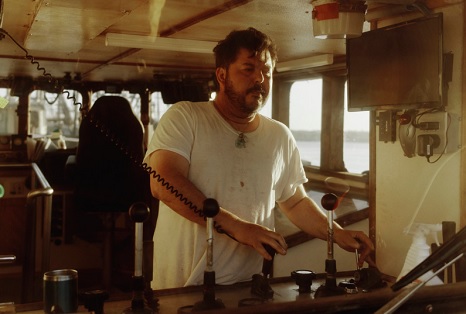
How Foreign Private Equity Hooked New England’s Fishing Industry
Before dawn, Jerry Leeman churned through inky black waters, clutching the wheel of the fishing vessel F/V Harmony. The 85-foot trawler, deep green and speckled with rust, was returning from a grueling fishing trip deep into the Atlantic swells. Leeman and his crew of four had worked 10 consecutive days, 20 hours a day, to haul in more than 50,000 pounds of fish: pollock, haddock and ocean perch, a trio known as groundfish in the industry and as whitefish in the freezer aisle. Leeman and his crew are barely sharing in the bounty. On deck, Leeman held a one-page “settlement 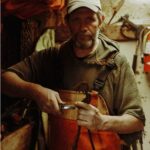 sheet,” the fishing industry’s version of a pay stub. Blue Harvest charges Leeman and his crew for fuel, gear, leasing of fishing rights, and maintenance on the company-owned vessel. Across six trips in the past 14 months, Leeman netted about 14 cents a pound, and the crew, about 7 cents each — a small fraction of the $2.28 per pound that a species like haddock typically fetches at auction. >Photos, click to read< 08:01
sheet,” the fishing industry’s version of a pay stub. Blue Harvest charges Leeman and his crew for fuel, gear, leasing of fishing rights, and maintenance on the company-owned vessel. Across six trips in the past 14 months, Leeman netted about 14 cents a pound, and the crew, about 7 cents each — a small fraction of the $2.28 per pound that a species like haddock typically fetches at auction. >Photos, click to read< 08:01
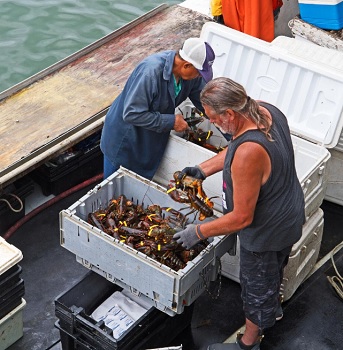
Massachusetts lobstermen back in water facing new challenges
Lobstermen in Massachusetts are back in the water and facing a variety of challenges. Fishermen were grounded due to right whale protections. The battle now is a combination of high fuel costs and lower prices at fisheries, raising the cost of fishing operations. “If the fuel price doesn’t get lower and the price of lobster doesn’t get into a stable – I’m not even going to say high price but a stable price – things are going to be tough,” >click to read< 21:10
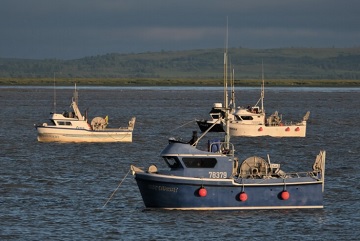
Bristol Bay Fisheries Report: July 4, 2022
Messages to the fleet – Happy July 4thto Captain Mike “Fishhead” Fourtner and the hard-working crew on the newly christened “Twin Tuition” on he first season earning her way on the bay! Every challenged faced in making this season’s opener in time showed how fisherman and the industry rallied to help. Have a great season, be safe and watch that line. Take baby pictures! From the crew of the Deborah Ann – Charleston SC. To Lewis and Joanna on Coffee Point – call home. Happy 4th of July. Audio reports, lots of updates. >click to read< 20:01
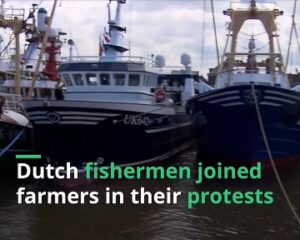
Dutch farmers and fishermen block roads and port to protest new emissions rules
At the heart of the protest are targets introduced last month to halve harmful nitrogen compounds by 2030. It is the latest attempt to tackle a problem that has plagued the country for years. Dutch fishermen have joined farmers in protesting nitrogen emission targets. In Harlingen, they blocked the port with trawlers meaning ferries to the islands of Terschelling and Vlieland could not leave for hours. Shrimp fishermen in particular fear that they will run into problems due to the government’s emission targets. As of next year, they will need to apply for new fishing permits. Without the necessary adjustments to their trawlers, the permits could be withheld. It would mean they would no longer be allowed to do their jobs., Video, >click to read/watch< 16:51 An aside. Human sewage can introduce disease-causing pathogens and nitrogen into the ocean, potentially impacting human health as well as coastal ecosystems and the communities that depend on them for such purposes as fishing. Interesting facts, and graphics. >click to read<
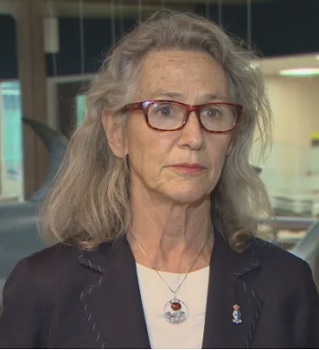
NLGIDC concerned with the recent announcement regarding Northern Gulf Cod
Similar to many NL fishing industry associations and the Province of NL, The Newfoundland and Labrador Groundfish Industry Development Council (NLGIDC) is also concerned with federal Fisheries Minister Joyce Murry’s decision to place a one-year moratorium in the Northern Gulf Cod stock. “This was a small fishery, however the total closure will have negative impacts on harvesters and processors as well as coastal communities on the west coast of Newfoundland and Labrador and the Lower North Shore of Quebec,” says Jim Baird, the Chair Person of the NLGIDC. >click to continue< 15:29
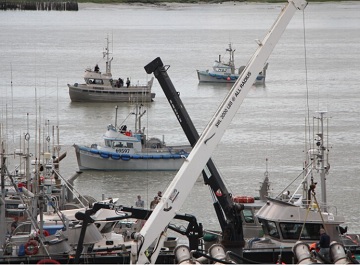
Silver Bay Seafoods agrees to pay fine for illegal dumping in the Naknek River
Sitka-based Silver Bay Seafoods earlier this month agreed to pay a fine of $467,469 for illegal dumping at its Naknek River facility in Bristol Bay. The company has also agreed to address violations of its state permit to discharge pollutants. The state Department of Environmental Conservation said in a press release that Silver Bay “repeatedly discharged significantly more fish waste into the Naknek River than permitted” in 2017 and 2020. State inspectors also found numerous violations at the facility during a scheduled inspection last year, like discharging bloody water. >click to read< 12:11
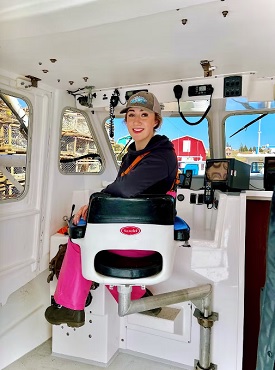
Low prices, low catch wraps up P.E.I. spring lobster season
With global demand and lobster prices reaching record highs in Nova Scotia in the weeks leading up to P.E.I.’s spring season – around $17.50-18.50 a pound – many Island fishers were looking forward to a promising start to their season. “Typically, it drops a bit before we start because there are more boats in the water at that time, so we didn’t expect anywhere near that price,” said Charlie McGeoghegan, chair of the Lobster Marketing Board. “However, we did expect to start off where we left off last spring, which was in the $11-12 range.” That combined with the price of fuel being double what it was and bait being up 30 per cent, we thought maybe once we get a few weeks in, the price will get better. That’s what it did last year.” Instead, the prices dropped again by another $1.50 a pound, said McGeoghegan. Photos,>click to read<– 09:14
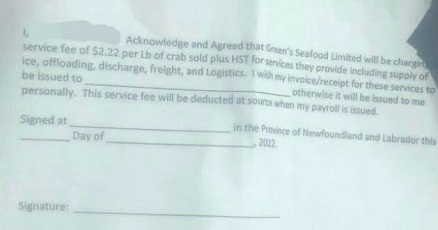
Panel-system of fish pricing has collapsed: SEA-NL
Seaward Enterprises Association of Newfoundland and Labrador says the panel system of fish pricing in this province has collapsed, with the panel either setting prices that will not result in a fishery, or processors ignoring prices and unilaterally setting their own. SEA-NL is calling on the provincial government to immediately step in and restore confidence in fish pricing. “The panel system has become a joke not only here in Newfoundland and Labrador, but with fishermen right around Eastern Canada laughing at us,” says Ryan Cleary, SEA-NL’s executive director. In mid-May the provincial government-appointed price-setting panel set the latest price for snow crab paid to the inshore fleet at $6.15/lb. Processors refused to buy crab for that price,,, >click to read the rest< 22:31
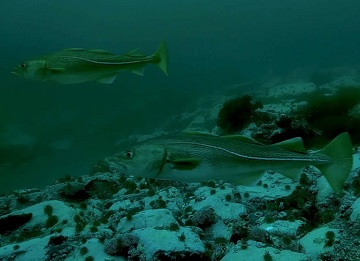
1-year commercial cod moratorium ordered for northern Gulf of St. Lawrence
Two days after the 30th anniversary of the 1992 cod moratorium that decimated the Newfoundland and Labrador economy, Ottawa has closed commercial cod fishing in the northern Gulf of St. Lawrence. On Monday, Fisheries and Oceans Minister Joyce Murray announced a one-year ban on directed commercial fishing in the northern Gulf of St. Lawrence in order to give young fish time to reach maturity. >click to read<
Rebuilding the Cod Fishery in Northern Gulf of St. Lawrence – “This is a tough decision; I recognize this commercial closure will pose economic challenges for many harvesters and comes at a hard time for people in Newfoundland and Labrador and Quebec. >click to read<
FFAW-Unifor Disappointed with Minister Decision to Close Gulf Cod – Fish, Food and Allied Workers Union is deeply disappointed with Minister Joyce Murray’s decision to close the cod fishery in the Gulf of St. Lawrence. The small cod fishery is economically and culturally significant to the region, and science has shown that natural mortality is the key unaddressed factor in the stock’s ability to grow. >click to read< 12:11
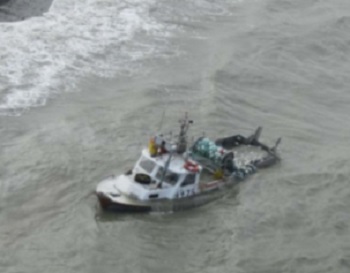
A troubled business
The size of the letters in the handwriting on the wall for the Alaska commercial salmon industry just keep getting bigger. Only days after the Bristol Bay sockeye harvest began with processors offering $1 per pound for some of Alaska’s best salmon, Atlantic Sapphire announced it had raised another $100 million-plus in capital to expand its land-based salmon farm in Homestead, Fla. Fish Farmer magazine reported that planned increases in a wealth tax imposed on private fish farmers in Norway helped push considerable Norwegian investment toward the company, but it is becoming increasingly clear that taxes or not there is strong investor belief in the idea that land-based, recirculating aquaculture systems are the salmon production method of the future despite the startup problems some of those farms have faced. >click to read< 10:55
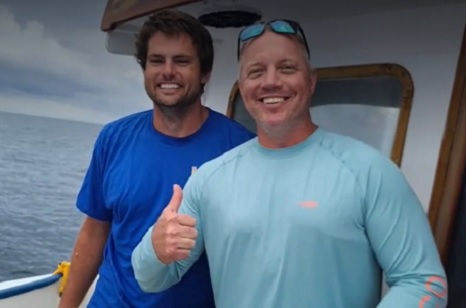
Charter fishing crew reacts to saving overboard commercial fisherman’s life
A team of junior hockey players from Nashville and their dads went on a charter fishing tour with “New Beginning” early Sunday morning, when they spotted something strange. “I saw a gentleman waving,” passenger Ryan VanBuskirk said. “I said, ‘That’s a human out there!’ The United States Coast Guard said a commercial fishing boat captain fell overboard around midnight— with no life jacket. A crew member on the captain’s boat, the F/V Fiona Leone, notified the USCG around 4 a.m. Sunday that he fell overboard while the boat was on autopilot. The charter fishing group said it’s a miracle they found the man around 7 a.m. on Sunday. Video, >click to watch/read< 08:36

Warning of ‘environmental devastation’ of offshore wind farms
A campaign group has accused the offshore wind industry of creating “environmental devastation”, and claimed that the impact will become greater as more projects are developed. Scotland Against Spin took issue with a Scottish Government survey which found that a majority of people approve of offshore wind farms. Those living in coastal areas cited the economic benefits of offshore, according to the study, while the effects on tourism “could be minimal”. Industry body Scottish Renewables said the findings indicated that most members of the public recognise the social and economic importance of the offshore wind sector. However, Scotland Against Spin chairman Graham Lang maintained that offshore developments are posing a threat to seabirds, including puffins and kittiwakes, and to fish species such as haddock, cod and mackerel. >click to read< 20:19

Coast Guard responds to man overboard of Commercial Fishing Vessel near Panama City, Fla
The Coast Guard responded to a report of a man overboard Sunday approximately 12 miles south of Panama City, Florida. Coast Guard Sector Mobile watchstanders received a notification at approximately 4 a.m. over VHF-FM channel 16 from a crewmember on the fishing vessel F/V Fiona Leone reporting that the captain of the vessel fell overboard while the vessel was on autopilot. The captain was in the water for more than four hours without a life jacket before the good Samaritan vessel New Beginnings rescued him. The Station Panama City boat crew convened with the New Beginnings and transferred the captain back to the Fiona Leone to safely navigate his vessel back into port. >click to read< 19:15
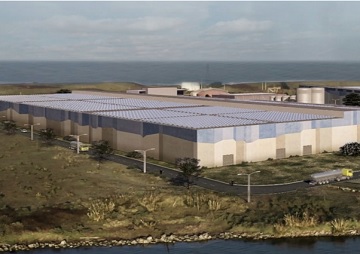
Nordic Aquafarms Final Environmental Impact Report Available for Public Review
The County of Humboldt has prepared a Final Environmental Impact Report for the Nordic Aquafarms California, LLC – Coastal Development Permit and Special Permit application (Case Number PLN-2020-16698), and the report is now available on the county’s website. The Planning Commission will be considering the Coastal Development Permit and Special Permit at a Public Hearing on July 28 beginning at 6 pm in the Board of Supervisors Chambers. >click to read< 12:00

Dungeness crab fishery to close early after slow start
The commercial Dungeness crab fishery in Southeast Alaska will close early this summer because the start of the season has been so slow. In recent years, Dungeness crabbing has been pretty great for commercial fishermen in Southeast. The harvests and prices have been above average, sometimes way above. Last year, saw the second highest harvest on record and the highest price ever paid. The summer season was worth $13 million. But this year looks different. The season opened on June 15. About 200 fishermen registered in the region and they’ve reported poor fishing. “I’ve heard generally it’s slow,” said Joe Stratman with the Alaska Department of Fish and Game. “I’ve heard generally it’s slow throughout the region.” It’s only the third time in the last 20 years that the season has been shortened. >click to read< 10:14
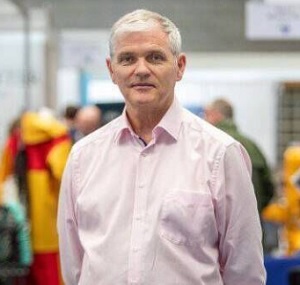
Rising cost of fuel adds to pressure on fishing industry
The fishing industry is facing a perfect storm of circumstances that must be addressed urgently by the Government to avoid permanent damage to the sector, according to representative groups. The rising cost of fuel is compounding the already significant strain on the industry caused by Brexit and the pandemic, fishers say. According to Aodh O’Donnell, chief executive of the Irish Fish Producers Organisation, said many boats can’t run profitably in the current circumstances. “We are looking at fuel costing €1.30 per litre or more, it has effectively doubled in cost in less than a year.” Mr O’Donnell said French and Spanish fishermen were being supported by their governments and this was leaving Irish boats at a disadvantage. >click to read< 08:54
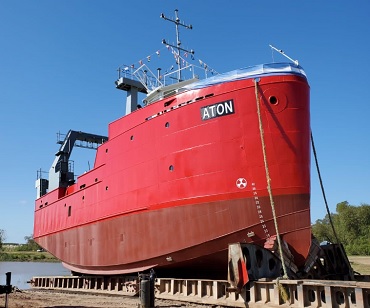
Cabo Virgenes Adds to its Fleet
One of the leading companies in the fishery for Argentine red shrimp, Cabo Vírgenes, is about to take delivery of a new trawler built at Astillero Río Paraná Sur, as the company continues to invest in capacity and innovative technology. Astillero Río Paraná Sur, located near Paraná River in the city of Lima, launched the new F/V Atón on 6th May ahead of final fitting out. This is part of the growth of Cabo Vírgenes, which has acquired seven fishing vessels since 2019, including two built for the company by Astillero Contessi. These two represented milestones, as F/V Luca Santino was the first Argentinian fishing vessel with a liquid ice system on board when it was delivered in 2019 and the 25-metreEspartano, delivered in 2020, is the first fishing vessel built in Argentina with an inverted bow. Photos, details, >click to read< 19:22
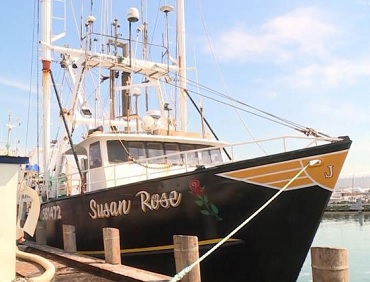
F/V Susan Rose: Coast Guard suspends search for missing fisherman
The Coast Guard has suspended its search for a missing fisherman who went overboard on Friday morning. According to a post on social media, the USCG said they, along with local agencies “have suspended the search for the fisherman from the F/V Susan Rose pending further developments.” Around 1:30 a.m. Friday, crew members of the commercial fishing vessel, F/V Susan Rose noticed one person wasn’t on board, according to Petty Officer Ryan Noel. >click to read< 16:32
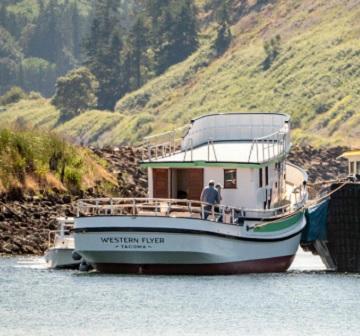
Western Flyer sails again
The Western Flyer left for Seattle after seven years of intense restoration and rebuilding in Port Townsend, but she will make a detour on the way to her final destination for one last visit to the town that returned her to the ocean. The boat, known most famously as the vessel writer John Steinbeck and marine biologist Ed Ricketts chartered for a research trip to the Sea of Cortez in 1940, had been in Port Townsend undergoing restoration since 2015. On Wednesday, the Western Flyer embarked on stage two of its rehab when it was towed to Snow & Company boat builders in Seattle’s Ballard neighborhood. There, over the course of the next four or five months, it’ll get a new engine, rigging, hydraulics and mechanical systems. >click to read< 12:14
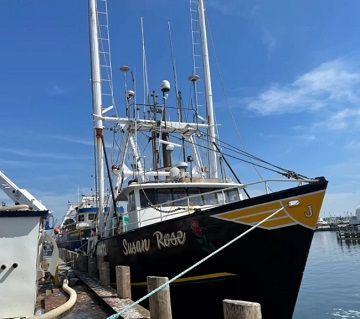
US Coast Guard continues search for overboard fisherman off the coast of Massachusetts
The search for a fisherman who went overboard off the coast of Massachusetts continues. The United States Coast Guard Northeast shared an update on Twitter around 9:20 p.m. Friday stating that crews would continue the search overnight for the fisherman who went overboard Friday morning from the 77-foot Susan Rose vessel, which is out of Point Judith in Rhode Island. The person is believed to be in the area of Noman’s Island, which is about three miles south of Martha’s Vineyard and New Bedford, officials said. >click to read< 10:04
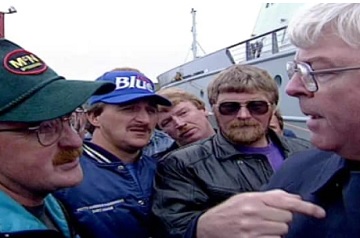
30 years after N.L. cod moratorium – the wins are few and losses are many
John Williams wishes he could say the cod moratorium of 1992 feels like it was yesterday. But after losing his livelihood and reinventing himself a few times over, he’s felt every one of the past 30 years. Williams was one of about 30,000 people put out of work when the federal government brought an end to the northern cod fishery on July 2, 1992. It’s a date that still stirs up feelings from a solemn and desperate chapter in Newfoundland and Labrador’s history. “It was a pretty sad time to know that you weren’t going to go fishing anymore,” Williams said. “At the time I had three kids, and they had to be fed, go to school, and be clothed. It was tough.” It doesn’t help Williams that he’s constantly reminded of his small role in history — being the person who prompted former Fisheries Minister John Crosbie to utter some of his most famous words. Video, photos, >click to read< 08:38
Today Marks 30th Anniversary of Cod Moratorium – Gus Etchegary spent his working life in the fishery and has been an outspoken advocate for the industry. He believes a big contributing factor keeping stocks low is seal predation, which wasn’t a problem when stocks were healthy. He says when the resource was huge there was little impact because replacement levels overcame any pressure put on the stocks by seal predation. >click to read< 09:40

Maine lobster industry may receive nearly $14 million in federal aid
U.S. Reps. Jared Golden and Chellie Pingree, both Democrats from Maine, helped secure the funding and pledged to keep advocating for the fishery. In a statement, Golden called the regulations misguided, indefensible and economically damaging. “NOAA has been unable to prove that these regulations will work, but lobstermen are still being forced to pick up the tab,” he said. “It’s just wrong.” Virginia Olsen, director of the Maine Lobstering Union, said the money will help keep fishermen in business as they “work to right the wrongs” of the new regulations. Patrice McCarron, executive director of the Maine Lobstermen’s Association, agreed. >click to read< 19:58
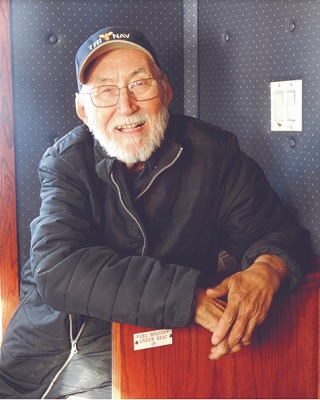
The cod delusion – A moratorium on cod fishing that was supposed to last two years has now lasted 30.
Three decades on, the latest DFO science still puts Atlantic cod in the critical zone. “I hope politicians and bureaucrats in Ottawa have learned something, because I’ve learned something: the moratorium was the biggest catastrophe ever heaped on the people in this province, ever. Nothing has been as bad as this,” says Captain Saunders, an 80-year-old Inuk. Seated in the wheelhouse of his longliner, docked in Pinsent’s Arm in late September 2021, Saunders speaks with the authority of someone with six decades of fishing experience, backed by centuries of hindsight. “Newfoundland and Labrador people fished for 500 years and didn’t damage the stocks. What Canada done was an atrocity in my opinion. It ruined a way of life. It ruined culture. All the stages, stage heads, they’re all falling apart, they’re all deteriorated — that’s the government did that.” >click to read< 17:40







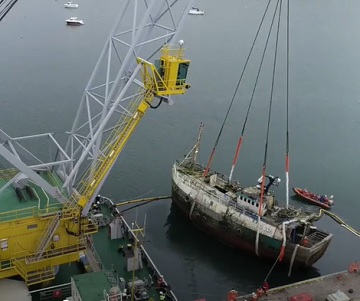
 08:00
08:00

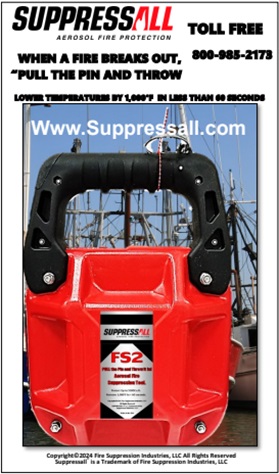

























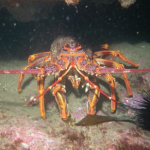
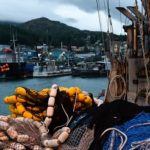
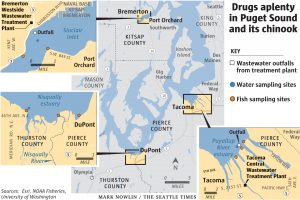
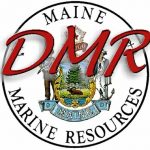
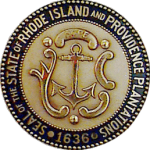
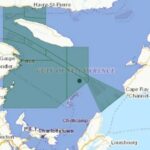
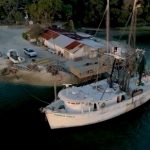
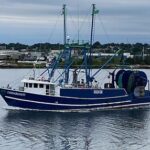
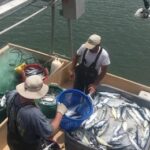
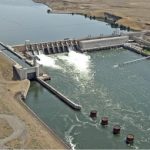
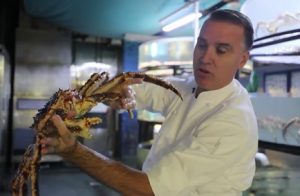
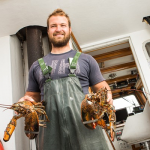



A note from Nils Stolpe: Comment on Proposed Hudson Canyon National Marine Sanctuary
I suspect, particularly considering the new and newly active Supreme Court, that there is going to be a huge push to fulfill the aspirations of the various “anti” groups to implement (impose?) their wish lists ASAP. I suspect as well that the current administration is worried about the appearance of its carte blanche granting of seemingly “do anything you want in the oceans” policy vis a vis wind power and is throwing this out as an indication that it really does care about the oceans. The effectiveness of so-called Marine Sanctuaries is still questionable but that’s no guarantee that you won’t have one in your bit of the ocean if the idea proliferates. Please take the time to go to Notice of Intent to Conduct Scoping and to Prepare a Draft Environmental Impact Statement for the Proposed Hudson Canyon National Marine Sanctuary and comment on this issue. Please keep in mind the fact that your waters and your fishery might be next. Nils 13:24
Share this post